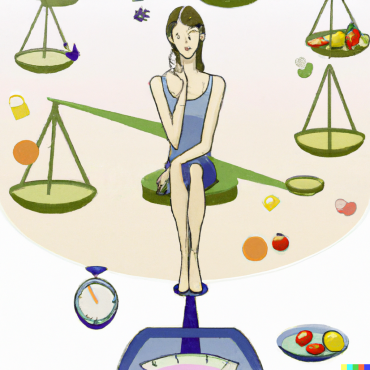At birth, we always compare a baby’s resemblances with the father or mother. It is a well-known fact that we develop specific features and characteristics, like one of our parents. This is possible with the help of genetic information coded on to each of our cells, in the form of DNA, which carry two pairs of chromosomes, one pair from each parent.
Genetics:
Millions of cells in our body are constantly undergoing controlled cell division to replace old cells. Afaulty transfer of these during cell division leads to unstoppable cell division, leading to lump formations. If such lumps start invading near and distant organs it is labeled as Cancer. This faulty transfer is known as Mutation in the gene and can be inherited or acquired.
Daughters are lucky to get two similar pairs of genes, in which case, the good gene will be dominant and express itself. If the good gene stops functioning, then there is a probability of a defective gene expressing itself leading to Cancer. Hereditary Cancers include Ovarian, Breast, Endometrial, Prostate, and Colorectal that areassociated with various syndromes like Lynch Syndrome, Hereditary Breast and Ovarian Cancer (HBOC) Syndrome, and Li-Fraumeni Syndrome.
There are various sets of genes responsible for cancer including BRCA1 & BRCA2 or Tumor Suppression Genes and many others. These genes can be identified by simple tests on saliva or blood sample. Previously, genetic testing was costly and not easily available at all centers. However, today genetic testing is done in India with higher sensitivity and specificity,along with better cost effectivity. Genetic Counseling is recommended first to chart out the family tree and mapping the corresponding first and second-degree relatives who are Cancer patients. Testing is advisable thereafter. Couple of indications for testing by individual or family is stated as-
- Personal or family history of Ovarian Cancer or Breast Cancer at a younger age
- History of Breast cancer in male family members
- Known BRCA1 or BRCA2 Genetic Mutation or identified Lynch Syndrome in the family
- Personal history of Triple Negative Breast Cancer diagnosed at 60yrs. or younger
- Personal history of BreastCancer at any age and a family member diagnosed with Breast Cancer at 50yrs. or younger
- Personal history of Colorectal or Uterine Cancer before 50yrs.
- Personal history of two or more Lynch Syndrome-related Cancers at any age
- Family history of two or more Lynch Syndrome-related Cancers before 50 yrs.
Ovarian Cancer:
The likelihood of hereditary Ovarian Cancer is around 5-10%. For those who are already diagnosed with Ovarian Cancer, may benefit to predict the response to Chemotherapy and also help to take preventive measures for breast and other Cancers. Genetic testing will also benefit family members by making them aware of possibilities of other Cancers by screening and risk reducing measures.
For the high risk groups (proven positive on genetic testing) it is highly recommended after completion of their family that Ovaries and Fallopian Tubes (Bilateral Salpingo-Oophorectomy) are removed surgically, which significantly reduces the risk of Ovarian Cancer. As a caution, strict screening along with closely monitoring oneself may benefit high risk persons who do not opt for risk reducing surgeries. It is advisable toundergo routine pelvic exam, CA-125, Ultrasonography (possibly Trans-vaginal) once or twice yearly after 35 yrs.Women with BRCA1/BRCA2 mutation may begin with Oral Contraceptive pills to reduce the risk of Ovarian Cancer.
Couple of signs and symptoms one should be on a look out for:
- Sudden change in bowel/ bladder habits OR menstrual cycle
- Abdominal distention, fullness, bloating
Early satiety-For more then 2-4 weeks. If yes, then it is recommended to consult a specialist doctor.





















































Comments